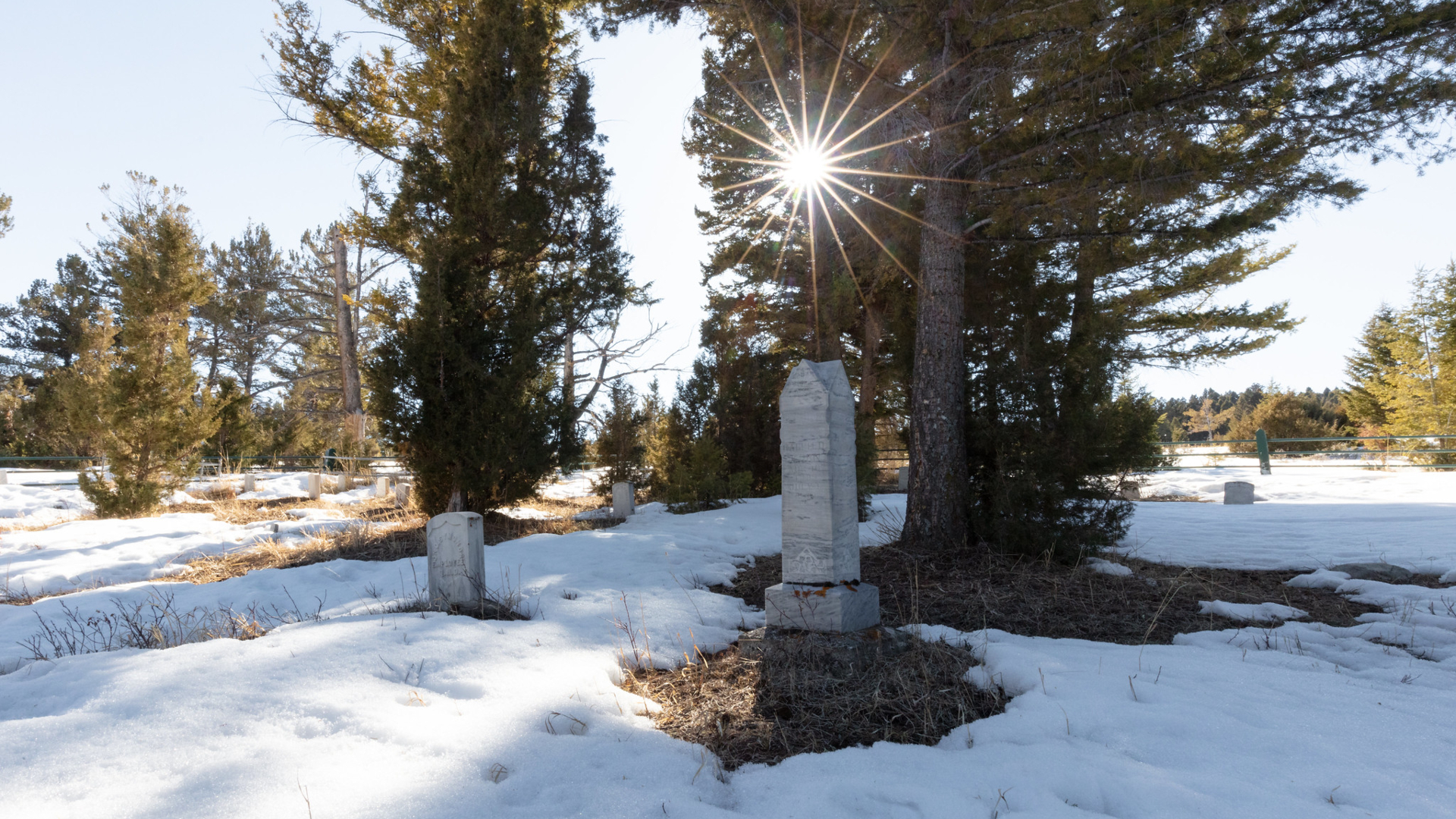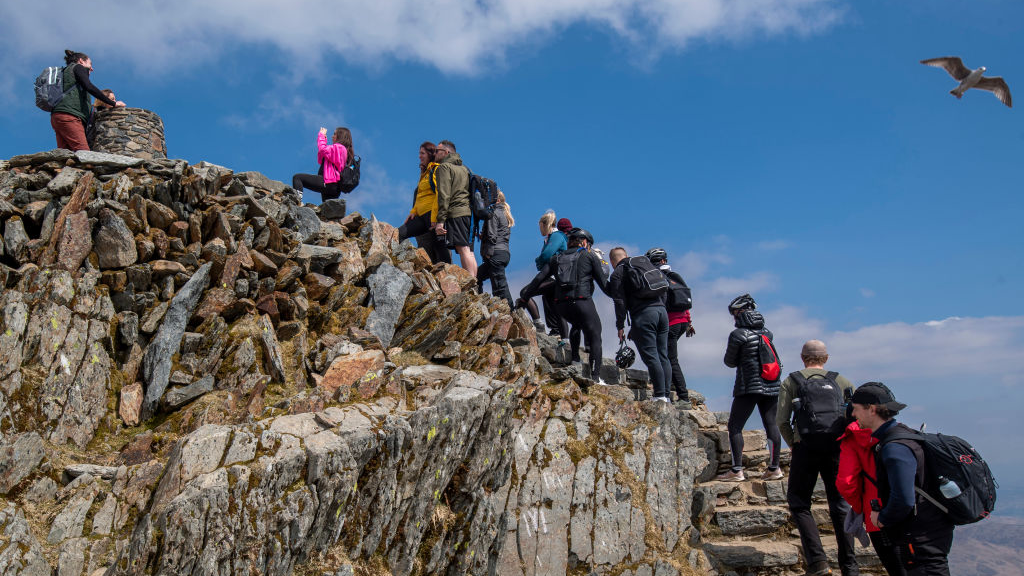Treasure hunter convicted for digging in Yellowstone National Park
Utah man was in search of Forrest Fenn’s hidden treasure chest

A Utah treasure hunter has been sentenced for excavating and damaging archeological resources in the cemetery of the Fort Yellowstone National Historic Landmark in Yellowstone National Park in pursuit of a secret treasure cache that had been hidden a decade ago.
According to news reports and a press release issued from the park, Rodrick Dow Craythorn, 52, of Syracuse, Utah, has been sentenced to six months in prison plus an additional six months of home detention, to be followed by two years of supervised release. He was also ordered to pay $31,566 in restitution by Federal District Court Judge Scott W Skavdahl.
- Exploring Yellowstone? You'll want the best men's hiking boots and best women's hiking boots on your feet
- You'll also want the best men's hiking backpacks and best women's hiking backpacks
Located in northwestern Wyoming, Yellowstone National Park is the second most visited park in the US National Park system. Craythorn was caught digging in the Fort Yellowstone’s historic cemetery near the northern border of the park in late 2019 and early 2020 while looking for the treasure. The treasure trove, believed to be worth millions, had been hidden by Forrest Fenn, a New Mexico art dealer, who had buried a chest of gold, silver and various gems in the western United States and then left a clue-filled poem to solve its location.
The treasure, placed in a 13th century Romanesque bronze chest, was hidden between 2009 and 2010 with an estimated $2 million of gold, jewelry and gems.
It was eventually found in June 2020 by Jack Stuef, a 32-year-old medical student from Michigan in another part of Wyoming.
Rangers and special agents of the National Park Service discovered 17 sites of illegal excavation attributed to Craythorn, including damage to a historic gravesite. The cemetery is a multicomponent archeological site with historical human burials. The cemetery is included in the National Register of Historic Places and designated on July 31, 2003, as a National Historic Landmark.
Yellowstone was established in 1872 as the nation’s first National Park, and the US Army was dispatched to the park in 1886 to protect its natural features and wildlife. At least 54 people were buried in the cemetery between 1888 and 1916, most of them civilian employees of the army and relatives of military personnel.
Advnture Newsletter
All the latest inspiration, tips and guides to help you plan your next Advnture!
The investigation into this matter revealed that Craythorn had done extensive research on the Fenn treasure and documented his efforts to family and friends. Craythorn did not find the treasure during his criminal activities.
“A National Park is no place to stage an adult treasure hunt motivated by greed,” said Acting United States Attorney Bob Murray. “Yellowstone is one of the country’s most popular National Parks and we must do everything in our power to investigate and prosecute those who damage and destroy its natural and cultural resources. The harmful actions of Craythorn, no matter the reason or intent, destroyed valuable archaeological resources that cannot be undone.”
Murray said the diligent efforts of assistant US attorney Stephanie Hambrick and National Park Service rangers and special agents were key to bringing the case to prosecution.
“Craythorn deserves time in a federal prison, no matter the length,” Murray said. “Yet this case really serves to remind those enjoying our National Parks the importance of respecting and preserving it for the whole of America.”
The decade-long search for Fenn’s treasure led to multiple people’s deaths before Stuef found it last year. Fenn had said it was “somewhere in the mountains north of Santa Fe” and perhaps in New Mexico, Colorado, Wyoming or Montana.
Craythorn apologized to the National Park Service and all US citizens in a statement from his attorney. He is scheduled to surrender to authorities this spring to begin his sentence.
“I was motivated by the thrill of possibly finding a treasure, and my obsession clouded my judgment,” Craythorn said in the statement. “After my time in prison, I intend to make full restitution. I can only hope that my case will serve as a reminder to people that we should respect National Parks and the laws that were enacted to protect them.”
Yellowstone National Park Chief Ranger Sarah Davis condemned Craythorn’s action as selfish and disrespectful and discouraged others from pursuing similar actions.
“This is an example of a highly egregious resource violation stemming from the Forrest Fenn treasure hunt saga,” Davis said. “Today’s action by the Department of Justice sends a clear message that these types of transgressions will be aggressively investigated and prosecuted.”
Brian is an award-winning journalist, photographer and podcaster who has written for Runner’s World, The Times, Outside, Men’s Journal, Trail Runner, Triathlete and Red Bulletin. He's also the author of several books, including Kicksology: The Hype, Science, Culture and Cool of Running Shoes. He lives in Boulder, Colorado, and loves to run, bike, hike, camp, ski and climb mountains. He has wear-tested more than 1,500 pairs of running shoes, completed four Ironman triathlons, as well as numerous marathons and ultra-distance running races.

